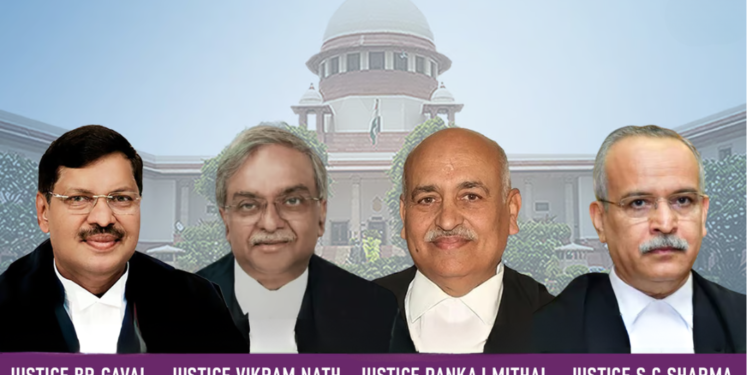In a potentially significant development for affirmative action, the Supreme Court on Thursday called for the identification of a creamy layer among the Scheduled Castes and Scheduled Tribes (SC/STs) to exclude them from reservation benefits.
Currently, the creamy layer concept applies only to Other Backward Classes (OBCs), not SC/STs. However, four of the seven Supreme Court justices on the bench that allowed sub-classification of SC/STs also supported the idea of identifying a creamy layer within these communities, ensuring that only the most disadvantaged receive the benefits of reservation.
Justice BR Gavai, in his concurring judgment, emphasized that the ultimate goal of reservation is to achieve real equality in the country. He argued that identifying and excluding the creamy layer among SC/STs from reservation benefits is essential to reach this goal.
“The State must develop a policy to identify the creamy layer among the SC/ST category and exclude them from affirmative action (reservation). This is the only way to achieve true equality,” Justice Gavai stated.
Justice Vikram Nath also supported the application of the creamy layer principle to SC/STs, suggesting that while the criteria for exclusion might differ from that used for OBCs, the principle should still apply.
“I agree with Justice Gavai’s opinion that the creamy layer principle should also apply to Scheduled Castes and Scheduled Tribes, with the exclusion criteria potentially differing from that used for OBCs,” Justice Nath said.
Justice Pankaj Mithal echoed similar views, asserting that reservation benefits should be limited to the first generation within a category.
“Reservation should be reserved for the first generation within a category. If the second generation has advanced, they should no longer receive reservation benefits. The State should assess whether the second generation has reached parity with the general category after benefiting from reservation,” Justice Mithal stated.
Justice Satish Chandra Sharma added that identifying a creamy layer among SC/STs should become a constitutional necessity.
Two judges on the Bench, Chief Justice of India DY Chandrachud and Justice Manoj Misra, did not express an opinion on this matter, while Justice Bela Trivedi delivered a dissenting judgment.
Notably, as reported by Bar & Bench, the question of continuing reservation for those whose families have already benefited from it was also discussed during the hearing in February.
Justice Gavai had remarked, “What happens is a person from a Scheduled Caste or Scheduled Tribe becomes an IAS, IPS, or IFS officer. Once they achieve this status, their children no longer face the same disadvantages as others in their community living in villages. However, by virtue of reservation, these children are still entitled to benefits in the second or third generation.”

















